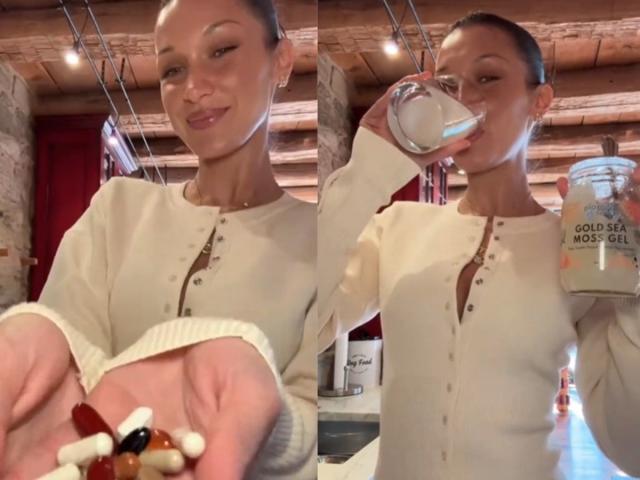Guard Your Knowledge & Pockets
What Are Supplements?
Supplements are a dietary manufactured product intended to supplement a person’s diet by taking a pill, capsule, tablet, powder, or liquid. A supplement can provide nutrients either extracted from food sources, or that are synthetic.
Supplementing has been used by many for years. It is documented that supplements hit big time in the 1940s as a means of improving health. The sale and sell of them haven’t slowed down since.
The history of the discovery of vitamins is the history of their deficiency disorders. Their discoverer was Casimir Funk, who is considered the ‘father of vitamin therapy’.
The usage of supplements have become popularized through social media ads, independent companies, public figures and many claims and testimonies.
American fashion model Isabella Hadid caused quite a stir not long ago; taking to Tik Tok to share her majorly intense morning routine. Bella, as she is affectionately called, filmed herself taking over $700 worth of supplements, juices and sea moss. This is known as her “wellness routine”. Some have praised her efforts calling her a ‘face of true wellness’ while others have found it quite disturbing.

Bella has also battled Lyme disease in the past. We do not know if there is a correlation between her obsessive regimen and the past illness. She is not the only public figure who has exhibited dependent behavior on supps as “magic pills”. So many believe that supplements are an automatic remedy for either maintaining health, skipping a healthy lifestyle or eradicating unhealthy choices.
Can Supplements Be Helpful
The short answer is yes, but its not exclusive. Living well is always a combination of wise and fundamental choices: regular checkups, good hydration, quality sleep, stress management, whole foods, regular exercise/mobility, solid mental health, a purified environment and so much more. Living well will never look the same for everyone. People are different biologically, pathologically and individually. We should try to practice as much of the above mentioned as possible especially as we age and our life dynamics change.
Supplements can help if they are filled with enough of the vitamins and minerals that are needed. Many supplements are loaded with fillers that somewhat provide the placebo effect (I think I’m getting better therefore I must be better). If you deal with a chronic illness you may find help with particular supplements.
Knowing how to maximize supplements will also determine the efficacy. Time of day, type of meal and what to pair with your supplement(s) can make the difference in their results. Your body needs to absorb the supplement and the knowledge of “how to” can help get the most from them. Example, calcium is best absorbed with Vitamin D. This combo helps the calcium to be absorbed in the gut and proper levels in your blood.
Disclaimer: You should always seek a professional when it comes to supplementing.
Cycling Supplements
Your food is a natural and powerful source of what some supplements can provide. Cycling supplements is a large part of maintaining their efficiency and results. This is another knowledge component of using supplements correctly. Rotating supplements can prevent overloading. You can try doing several things to prevent overloading:
take your supplement regimen during the week and cycle off on the weekends
take your supplements for 3 weeks in the month and cycle off for one week
It is important to know what you’re taking (ingredients), how to take it and how long to take it
Supplements are not “magic pills” that do all of the work. You have to partner with them and do your part.
Signs of Over Supplementing
Over supplementing can occur when you aren’t aware of how many and how frequently you are using them. You may begin to feel nausea, have constipation, diarrhea, vomiting or other symptoms. You want to communicate with your Dr. Let them know what you’re feeling and what you were taking.
The Food and Nutrition Board of the National Academies of Sciences, Engineering and Medicine has set a Tolerable Upper Intake Level, or UL. This is the maximum daily intake unlikely to cause adverse health effects for vitamins and minerals; dosages above this can be harmful.
Conclusion
In closing know the reasons that you supplement. Know how to supplement. Do not supplement to exclude the other necessities of living healthy. Don’t supplement because its popular or has a special claim. Understand your medication with the supplement you’re interested in. Get professional assistance. Supplements are a big dollar industry. Protect your pockets and use wisdom.
Be Well Be Whole




Excellent information, and great examples and advice. May all who take vitamins pay close attention and always consult your health care provider.
Thank you for taking the time to read and provide your feedback!